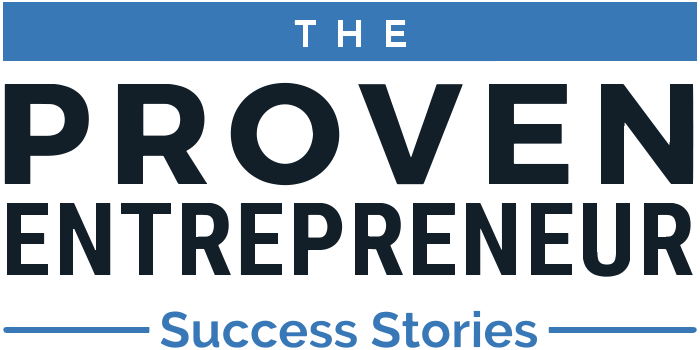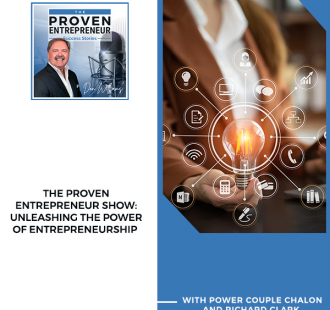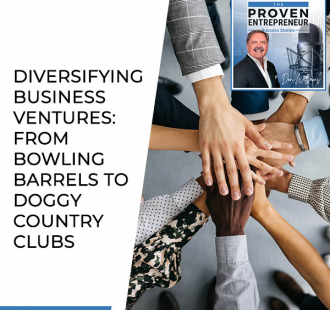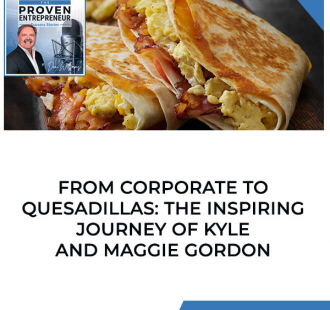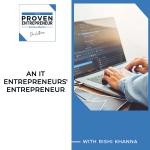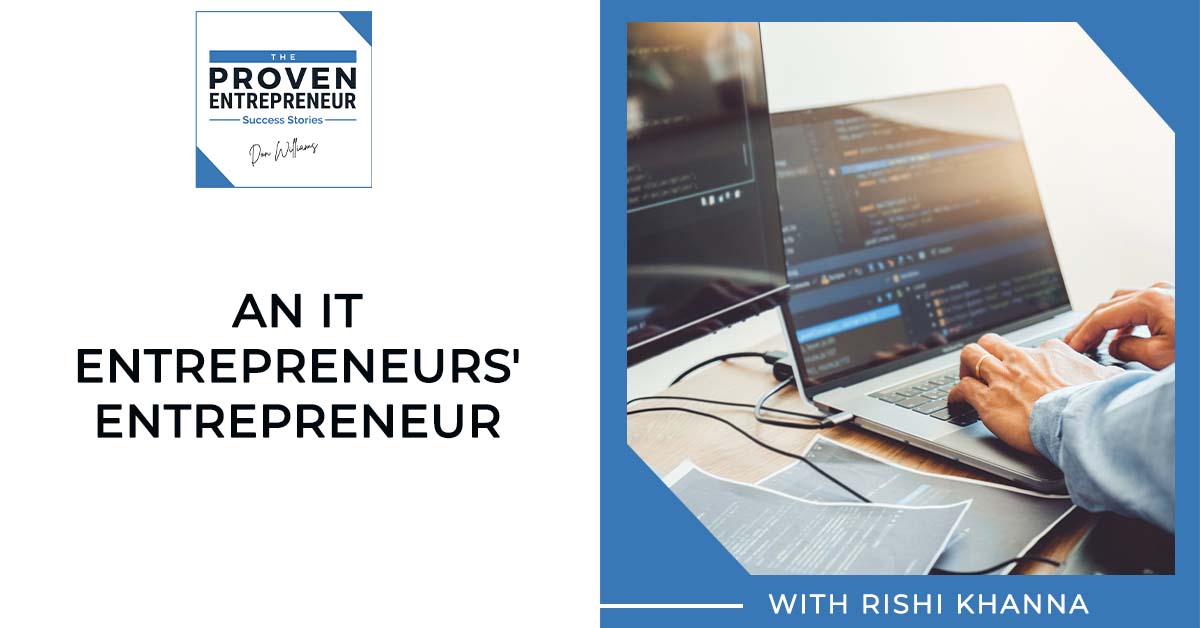
Do you have what it takes to venture into the world as an IT entrepreneur? Join us in this episode as Rishi Khanna discusses how he is keeping and managing his business while trying to scale it. After graduating, Rishi worked for a consulting company but soon decided to start his own software development company. The interest comes from his younger years, but he still pursued a different degree in business economics since he enjoys it more. He shares the challenges he encountered along the way and how he dealt with failures.
For information on how to work with Don visit Work With Don Williams
You can also reach out to Don Williams at https://donwilliamsglobal.com
Please join Don and his businesses in support of St. Jude’s Children Research Hospital in its Mission to cure Childhood Cancers. You can donate to St. Jude at stjude.org/donate
—
Listen to the podcast here
Rishi Khanna – An IT Entrepreneurs’ Entrepreneur
I’m here with another episode. I’ve got my good friend from Dallas, Rishi Khanna, of ISHIR and ENO8. Welcome to the show, Rishi.
Thank you so much for having me.
It’s my pleasure. Let’s hop right in. I know you own multiple businesses. You own more than the two that I announced. Let’s talk about what’s getting most of your time and attention. What’s your main business focus?
The business I’m in is custom software development. The different businesses I have are all ancillary to that sort of service. The way I explain to my friends is that I am the Mini Cooper, BMW, and Rolls-Royce of service. The Mini Cooper is the business about helping customers, staff, remote IT staffing teams or our software development teams globally.
The BMW of service is where we do digital transformation, which was around modernizing the software, helping them move it into the cloud or helping use automation to scale the business. The top shelf of a business is ENO8, which is about leveraging innovation and helping develop digital products for the business that help you grow 10X or 20X and exponentially grow your business.

How long have you been in the software development world?
I have been in the software development world since I was in third grade. I have been software developing since then but for enterprises, I have been developing software since I was in high school.
Let’s take you way back. Let’s roll the clock way back to little Rishi. As a child, were your parents entrepreneurial? Did they plant that entrepreneurial seed in your life?
Yes, they did. In fact, both of my parents are entrepreneurs. They both had their own businesses. At one point, my dad sold his business and then combined forces with my mom to help grow her business. My dad was a first-generation entrepreneur but my mom came from an entrepreneur family. She came from a family that had businesses prior to marrying my dad.
Do you have brothers and sisters, and are they entrepreneurial as well?
You just feel it if you’re destined to be an entrepreneur. Click To TweetI have a sister. She’s also a CEO and an entrepreneur. Imagine four entrepreneurs on a dining table growing up. It’s an interesting place.
I’m sure the stories and the conversations were lively. We are still talking about little Rishi. What was your first job where you got paid?
It was after I graduated from UT Austin. I’ve got my consulting role at Deloitte. I worked for them for sixteen months, so I only had sixteen months’ worth of paychecks.
You had sixteen months of dreaded employment, and then you began your first company.
I started my first company, ISHIR, which is the BMW.

You studied at the University of Texas at Austin, and your studies there were in computer sciences.
I did go in for Computer Science, but I graduated with a Business Economics degree. I switched gears. I decided that I loved programming but enjoyed Economics and Business courses more. I switched gears while I was in school.
You may have had no choice but to be an entrepreneur but what led to leaving Deloitte and starting your first company?
You are right on the fact that I was destined to be an entrepreneur but that’s the destination or destiny guided by my parents. They said, “When you grow up or when you go to college, you will go and do business. You will probably join the family business.” That was the destiny of being an entrepreneur but the way it changed for me is that when I was at UT, I felt that I did not want to follow the given path by my parents. I wanted to explore and find my own purpose, so what I did is that I decided to go and find myself a consulting job, which is what I wanted to do at that point because I felt that it was going to give me a good holistic view of being a business person.
I didn’t think that I would get into a business at that point. More so, I would think I was wanting to start my career in consulting, and then probably going to get my MBA, and then think about business. I had this path for myself but when I was in Deloitte, I had the fortune to work with some great people. One of the senior managers that I was working with and to whom I used to report had a performance review of me.
Explore who you are and define your own purpose. Click To TweetHe said, “I don’t know why you did consulting. You are not meant for consulting.” I said, “What do you mean?” He says, “You are meant to be an entrepreneur, a businessman.” I said, “I don’t know what you are talking about.” He convinced me that I should go and pursue my own goals instead of, at that point, investing any more time in consulting. What I did was paused that conversation, reflected on it, gave them my two weeks’ notice, and then started my company. It didn’t take that long to make a decision. I only had to sleep over it.
As is the case with a lot of entrepreneurs, it does not take a lot of time. I love the fact that even though you were somewhat destined to be an entrepreneur, the path was through the family business, and then like a good entrepreneur who always has a little bit of rebellion, you said, “I’m going to go this path.” I felt that rebellion was a component of entrepreneurs until I met Ari Weinzweig of Zingerman’s Deli out of Ann Arbor, Michigan. He was like, “It’s maybe better said as an anarchist.” I was like, “I like that even better. I think that is the average entrepreneur.”
You have been in business a long time. You’ve got different service level offerings. Tell us about a time in your business past when things were going along pretty well but then a couple of pieces fell into place where you had this huge hockey stick of growth. Do you have a warped speed moment you can share with us?
Yeah. Early on in the business like any other entrepreneurs trying to start a business, we hustled and did whatever it took to get the business going. All of a sudden, we saw this hockey stick moment around 2000. I started my company in ‘99. I saw the hockey stick moment come my way from 2003 onwards. Pre-2003 was a very rocky road. We went up and down. We almost went out of business twice because of the dot-com bust and the 9/11 hit. They were pretty close cases, and then all of a sudden, we found our niche. We found what we were looking for that helped us grow. We grew fairly rapidly.
In our first year, we were about 25-odd people. Our second year was ups and downs. Let’s say we averaged out at 25 but what happened in the fourth year, which was 2003 onwards was we started seeing a hockey stick moment where we went from double digits to three digits. We went up to almost 400 employees. We grew really rapidly.

Is there anything you can point to as, “Because of this, it facilitated that major growth?”
The word is focus. When we figured out what problems we were trying to solve and committed to them, that’s when the focus happened, and we started seeing the hockey stick curve go up.
What about a hard lesson? Is there something in your past where while you were going through it, you were like, “This is brutal. This is maybe the worst moment of my business career?” Do you have a hard lesson you can share? We know that success stories include stories of failing, and almost equidistant from the main line, the bigger the failing, the larger the subsequent winnings. Do you have a hard lesson you can share with us?
We all try to celebrate the successes but don’t celebrate the failures. The failures help and prepare us for the best. Also, appreciate the good moments that we have. I went through a business divorce in 2010, which was eleven years into my business. That experience taught me a lot of lessons about trust and relationships. It almost mentally broke me.
I had a business partner who was one of my best friends. Whatever led us to separate ourselves was a hard lesson by itself. What I would say is the hard lesson happened after we split, and we’ve got into separate businesses and split the business. I felt that I had to mentally prepare myself to start from the beginning because there were certain parts of my business that I did not manage and maintain. I was focused on what I did, and my business partner was focused on what he did. What happened is that I had to relearn how to do the business alone because I didn’t have that person to count on to make decisions when I had to learn how to make different decisions.
You need to constantly be clear about your intentions and where you are trying to grow. Click To TweetI always had a good leadership team but then I inherited a new leadership team. I had to build brand-new teams. It’s almost like mentally, I had to start all over again, which is hard when you have worked hard to build a business for eleven years. That taught me a lot of things about myself. I had to relearn who I was, redefine my own purpose, and find myself on that beaten path.
Maybe I’m not being very descriptive but the reality is that you need to constantly be clear about your intentions and where you are trying to grow. At the same time, you have to keep investing in yourself and your teams. We have this thing called traction and VTO. I didn’t have all those tools to myself back then. I had to rethink and didn’t have the tools to go with it. Always keep learning and getting tools to help you in those situations where you have never been in or at least have tools that can help you get out of those situations.
I love having the right tools and recognizing that you never know it all. You have to continue to grow up to continue to reach past the boundaries of your comfort zone. There’s no one other way around it. What about a pearl or a golden nugget, something you know that we don’t know that would help entrepreneurs everywhere as they march towards their success story? What’s some golden nugget you could share?
The simple golden nugget is that you cannot do it all. You have to have the right people on your team to help you get there. When you start your business, you feel that you are the superhero and you can do everything. You need to explore yourself to learn everything. I’m not taking that away but you need to be able to depend on people to get there.
As soon as you are able to figure out the unique abilities that you think nobody else has and you can invest in, and you determine that these are the things that you do not enjoy doing and you can have other people who can do it as good or better than you, that’s when you start seeing the growth. You then get out of their way, and you let them do what they do well. That’s a unique ability. Focus on your unique ability on your own. That makes magic happen. That’s my golden nugget. Keep finding the love in what you do and keep investing in what you love doing.

That’s pure wisdom. I’m a 35-year entrepreneur. I say this with a little remorse. It’s not that I feel bad but if I had it to do over, I would do it differently. For maybe the first ten years, I erroneously thought I was the smartest guy in the room. In some of those rooms, that helped with that mindset but I didn’t see the real magic in my business until I surrounded myself with people that could do things I’m not that good at. It takes a team. Somebody has got to play quarterback, play running back, and kick the ball. It takes the whole team.
We are going to go back to the time machine. We are going to put you in the time capsule. It’s going to take you all the way back, and you are probably in UT Austin at that time to when you were your twenty-year-old self. If you had a couple of minutes with yourself now, with your twenty-year-old self, and you can only share one piece of advice that would have helped you make things easier and more productive on your entrepreneurial journey, what would that one piece of advice be that you would tell your twenty-year-old self?
Keep learning. As my twenty-year-old self, I felt that my learning would end as soon as my college ends, and I was going to start doing what I needed to do. Continue learning. Continue to invest in yourself. Continue to read the books, talk to smart people, and surround yourself with smart people around you. Keep learning. There’s no end to it. You will keep learning for the rest of your life. You cannot grasp enough knowledge in those 13 or 17 years of being in school or depending on how long you finish your studies.
I’m in my home studio, and I live right around the corner from Deloitte University, where they do significant investments in learning amongst their teammates. If somebody wanted to reach out to you and talk about Mini Cooper, BMW, and Rolls-Royce software development, how would they get ahold of you?
Find me on LinkedIn. That’s probably the easiest way. I can also share my email address. It’s Rishi@ENO8.com.
Thank you so much for joining us. There were lots of wisdom here. Reach out to Rishi if you want to know something because he knows stuff. I’m grateful that you came to the show. Thank you very much.
Thanks for having me. This has been a great conversation. I appreciate it.
That’s it for this episode of The Proven Entrepreneur show. I will see you next time. Thanks.
Important Links
- ISHIR
- ENO8
- Zingerman’s Deli
- LinkedIn – Rishi Khanna
- Rishi@ENO8.com
About Rishi Khanna
 Rishi is a serial entrepreneur with a heart for making an impact on everyone’s lives. He is a passionate, impact-driven, result-oriented visionary that has been in business for over 21 years. He has been recognized and honored with the Entrepreneur of Excellence (EOE) award by FW INC Magazine. He likes to use his time to guide, mentor, and assist others to follow their passion and purpose. He helps others find their purpose, passion, and unique abilities. He is a life coach.
Rishi is a serial entrepreneur with a heart for making an impact on everyone’s lives. He is a passionate, impact-driven, result-oriented visionary that has been in business for over 21 years. He has been recognized and honored with the Entrepreneur of Excellence (EOE) award by FW INC Magazine. He likes to use his time to guide, mentor, and assist others to follow their passion and purpose. He helps others find their purpose, passion, and unique abilities. He is a life coach.
For information on how to work with Don visit Work With Don Williams
You can also reach out to Don Williams at https://donwilliamsglobal.com
Please join Don and his businesses in support of St. Jude’s Children Research Hospital in its Mission to cure Childhood Cancers. You can donate to St. Jude at stjude.org/donate
